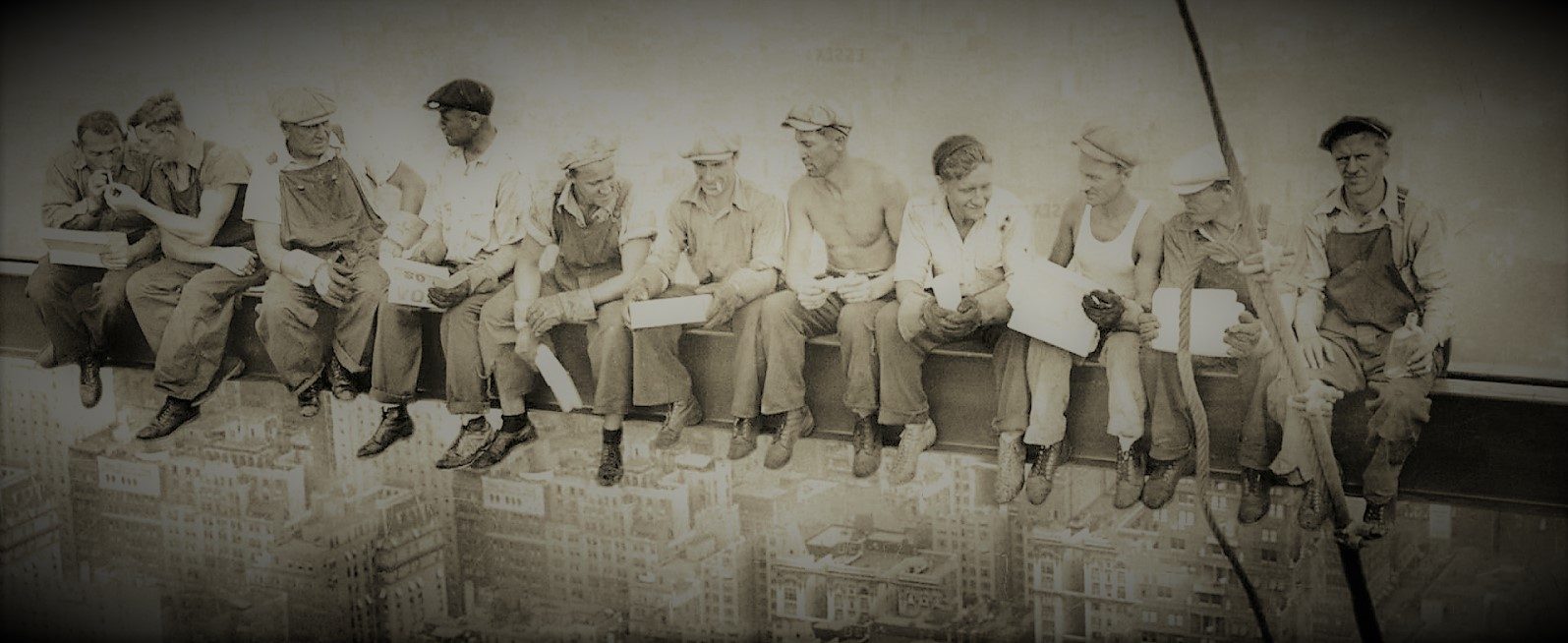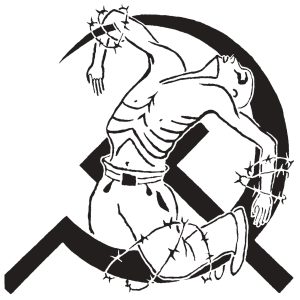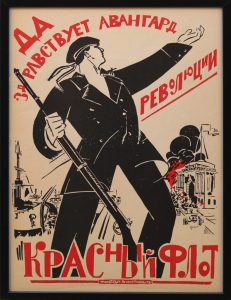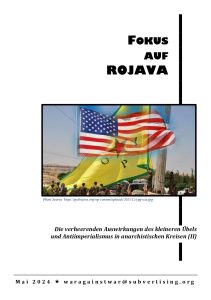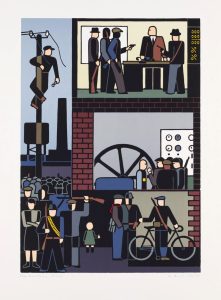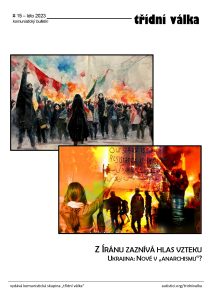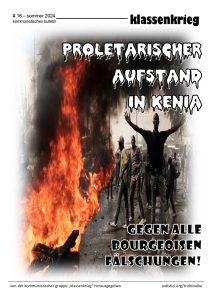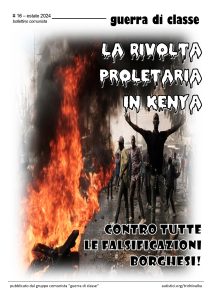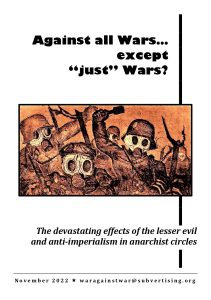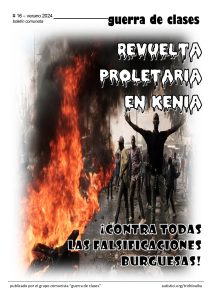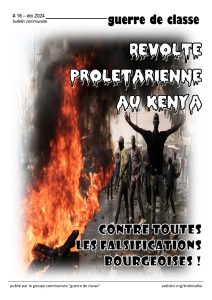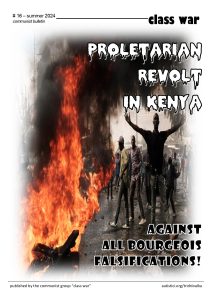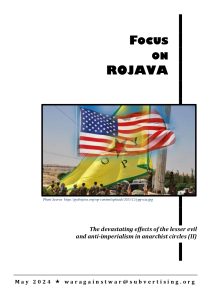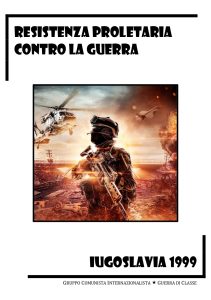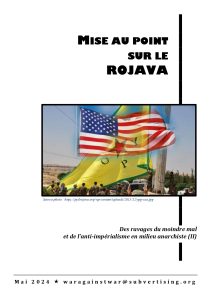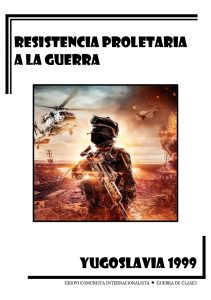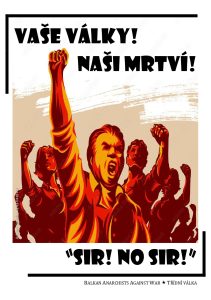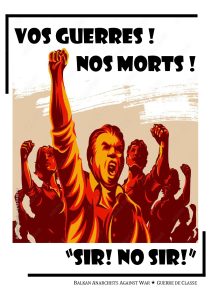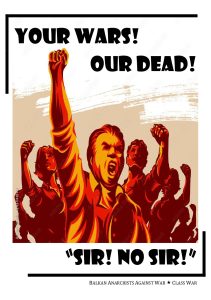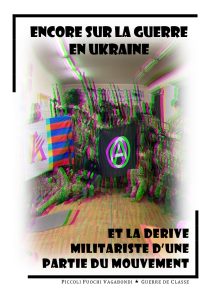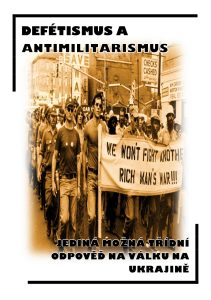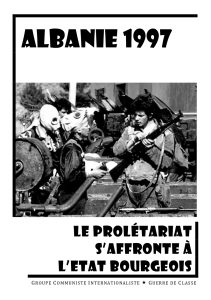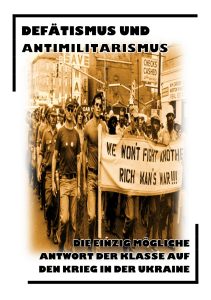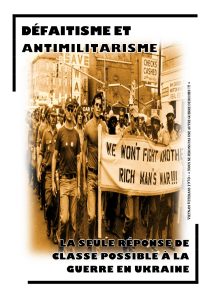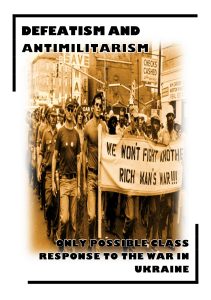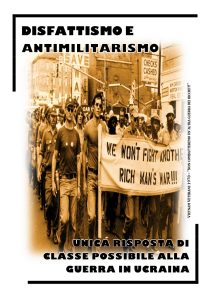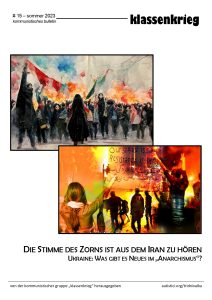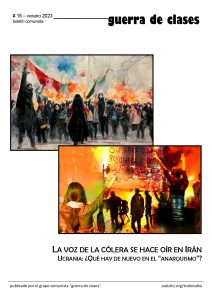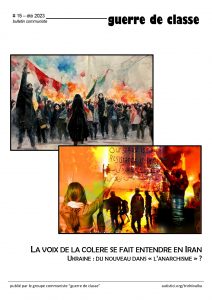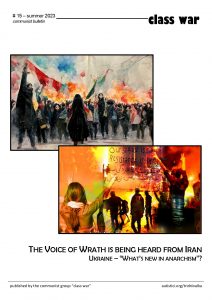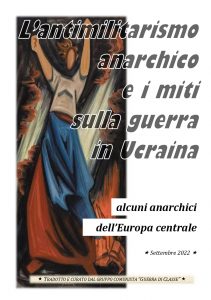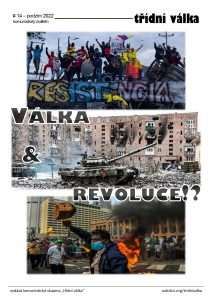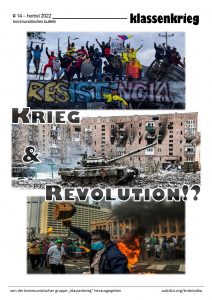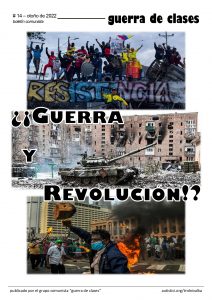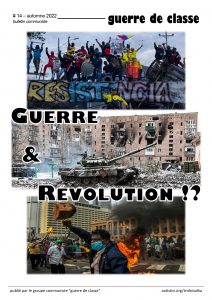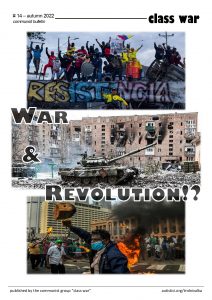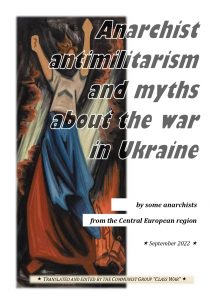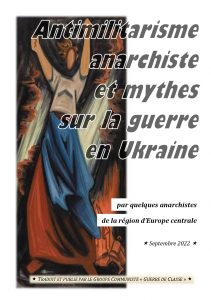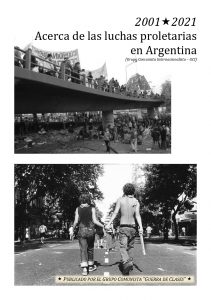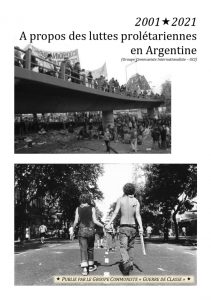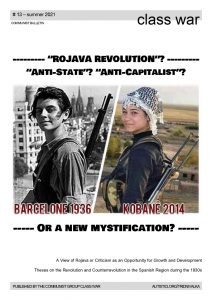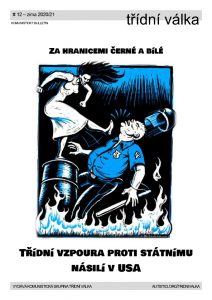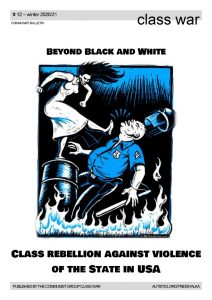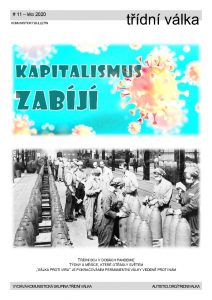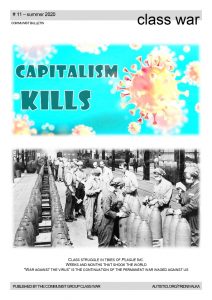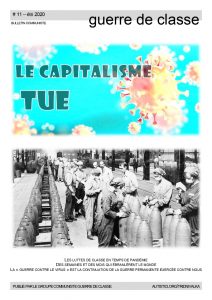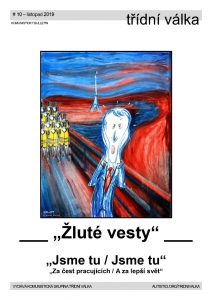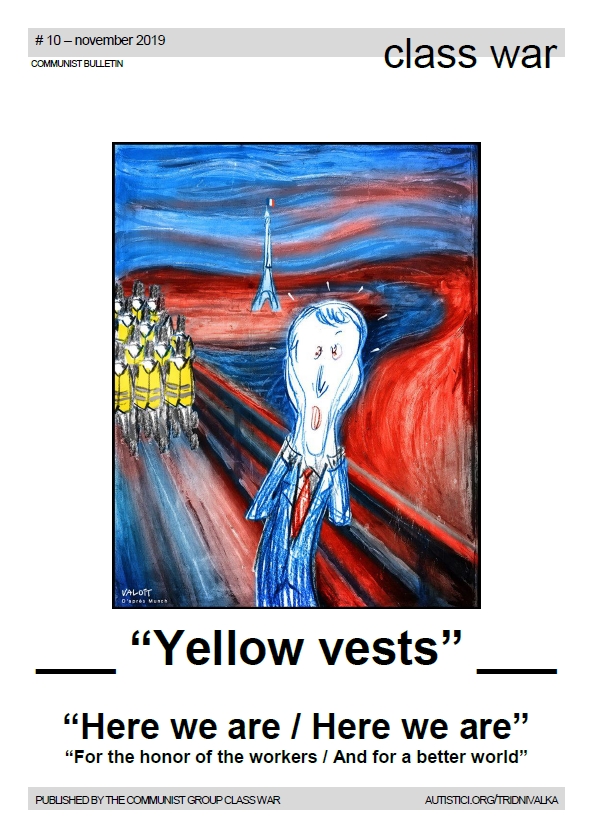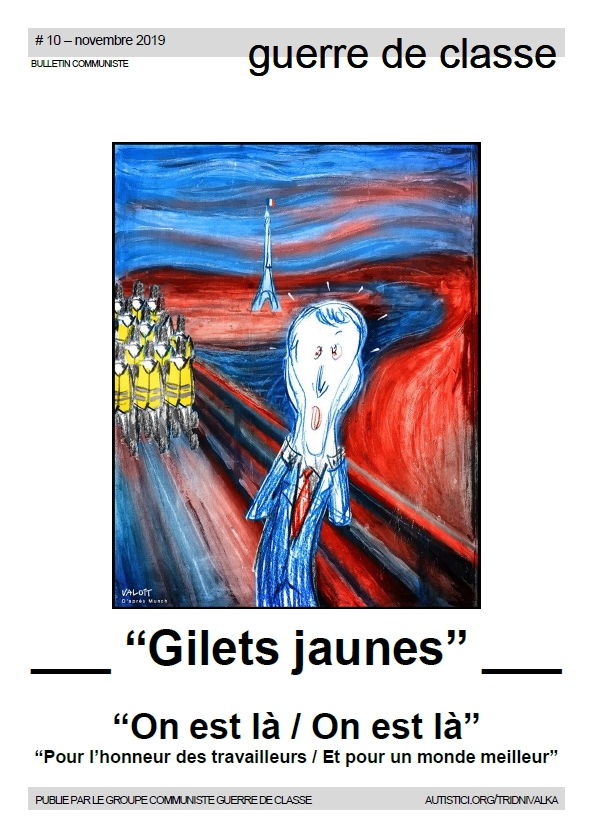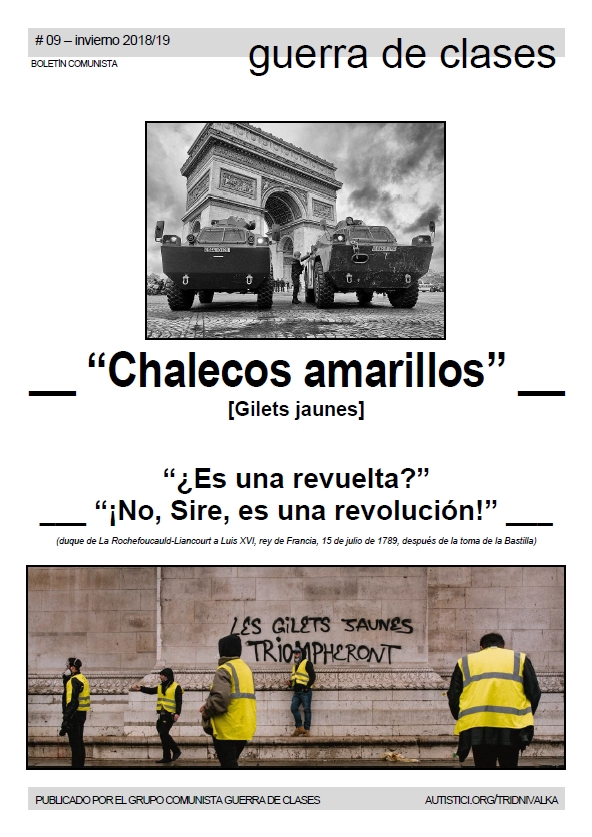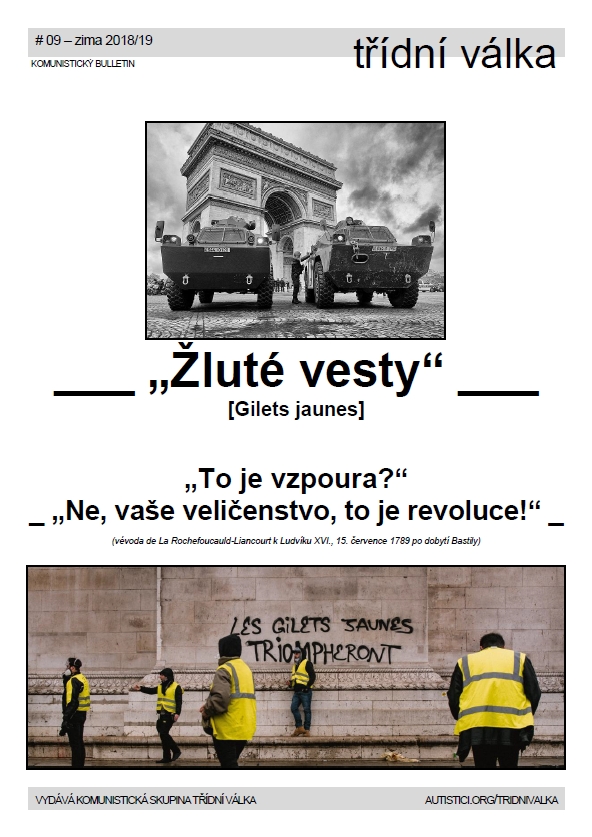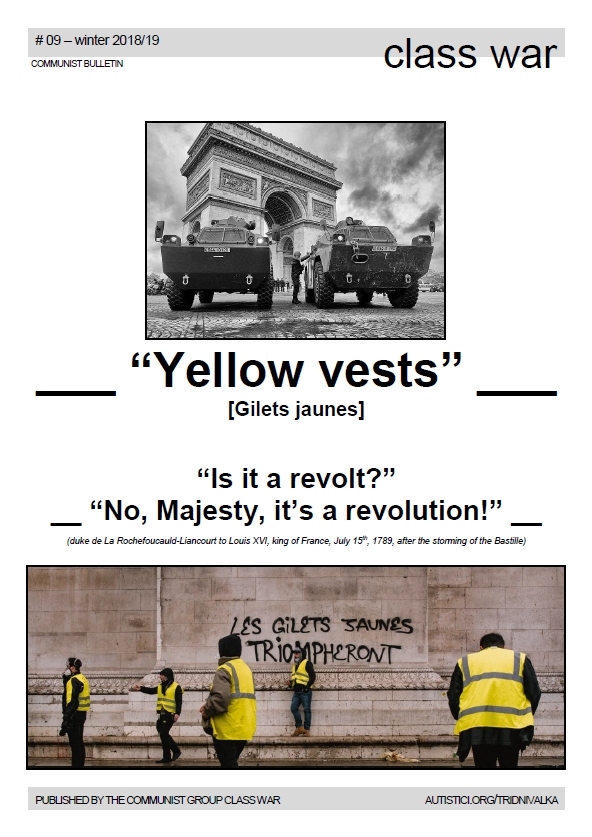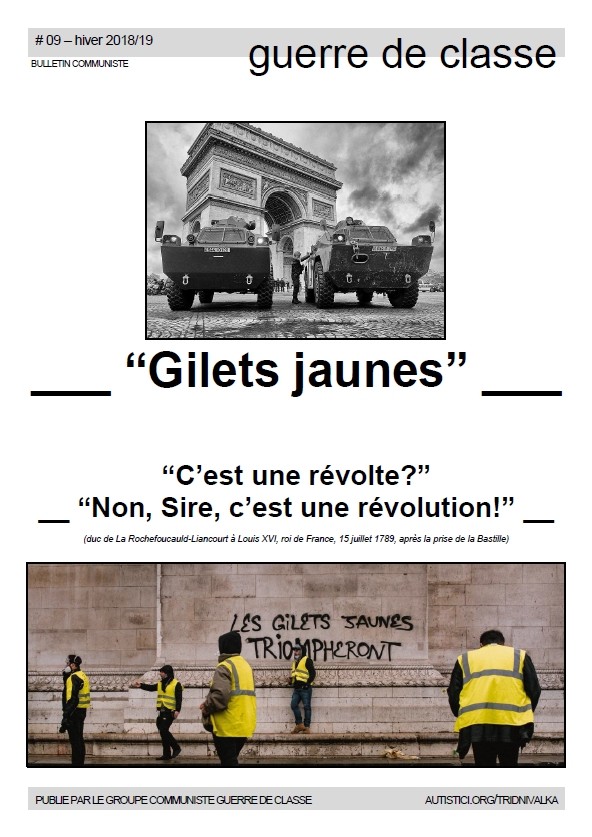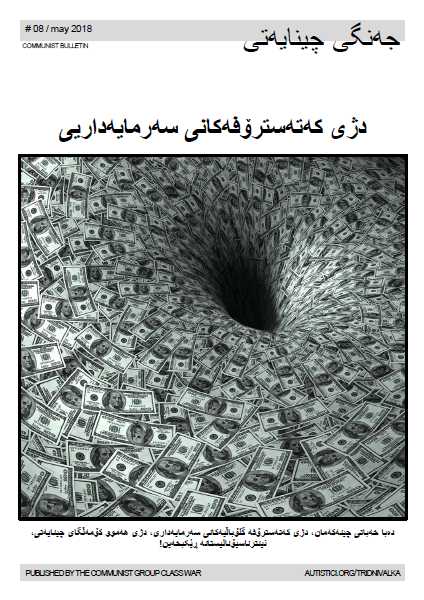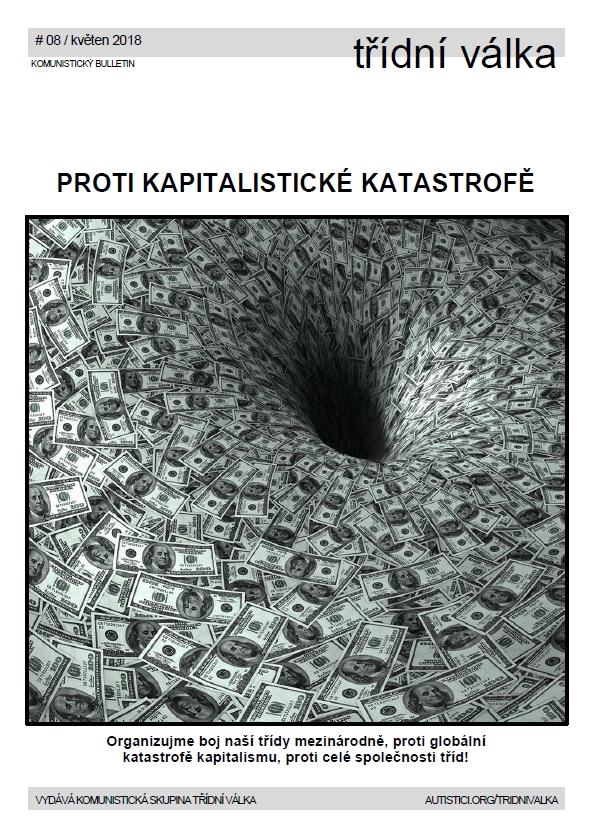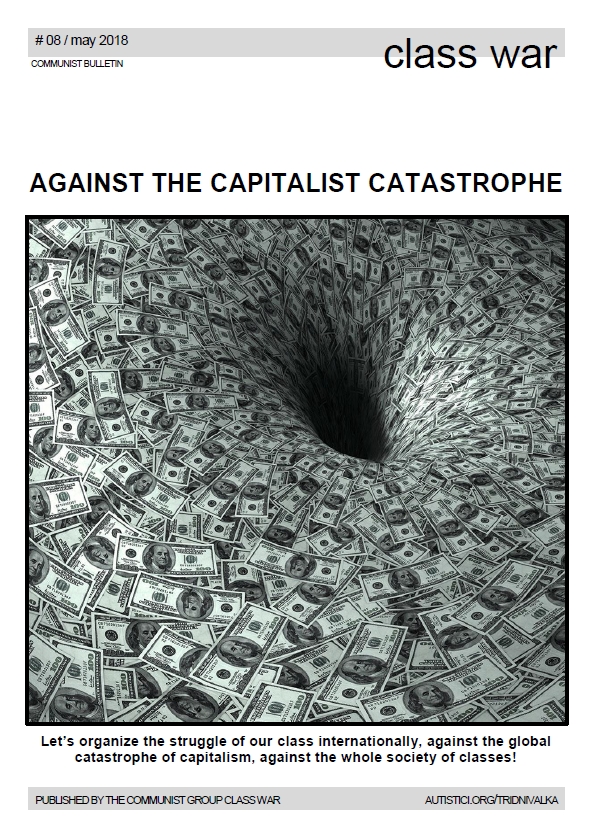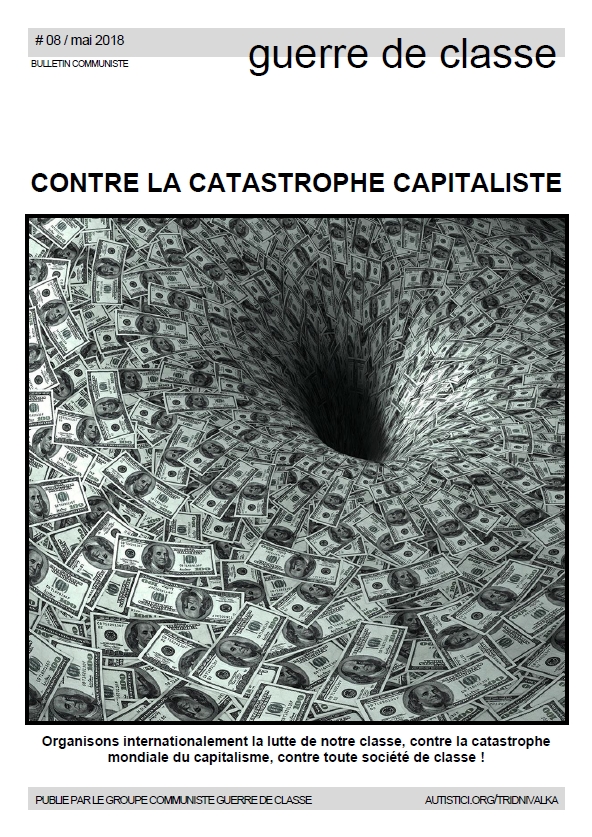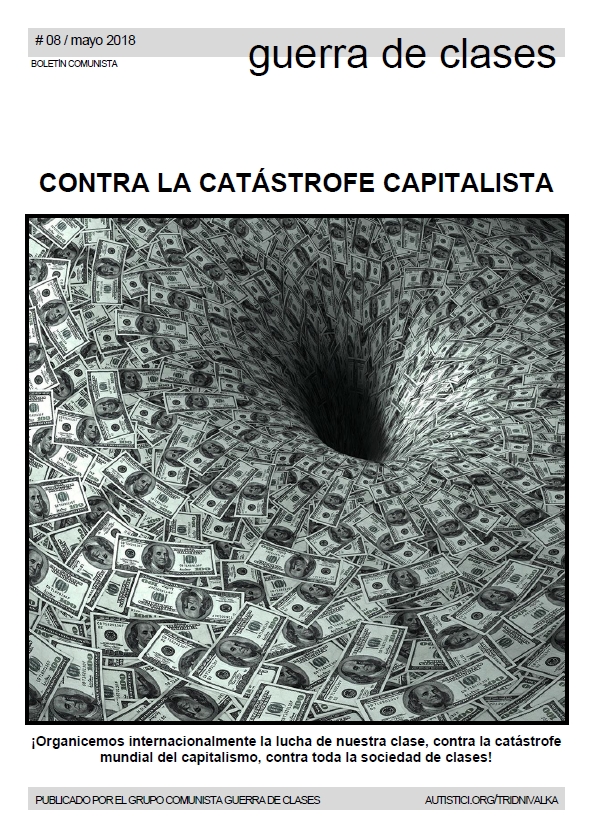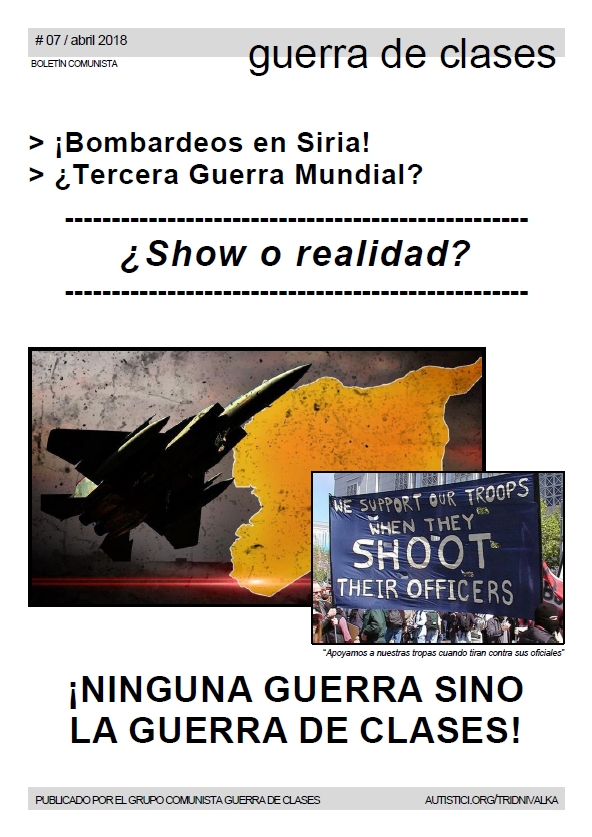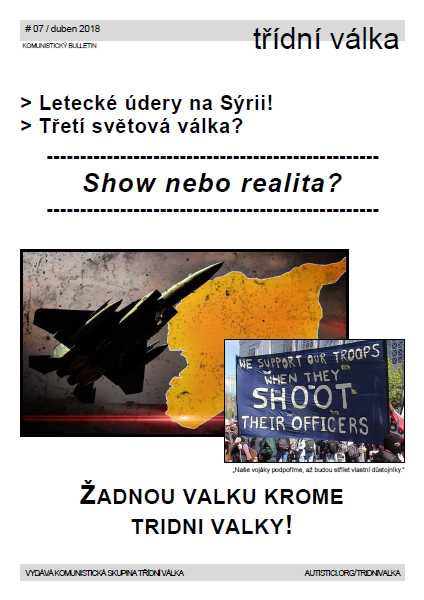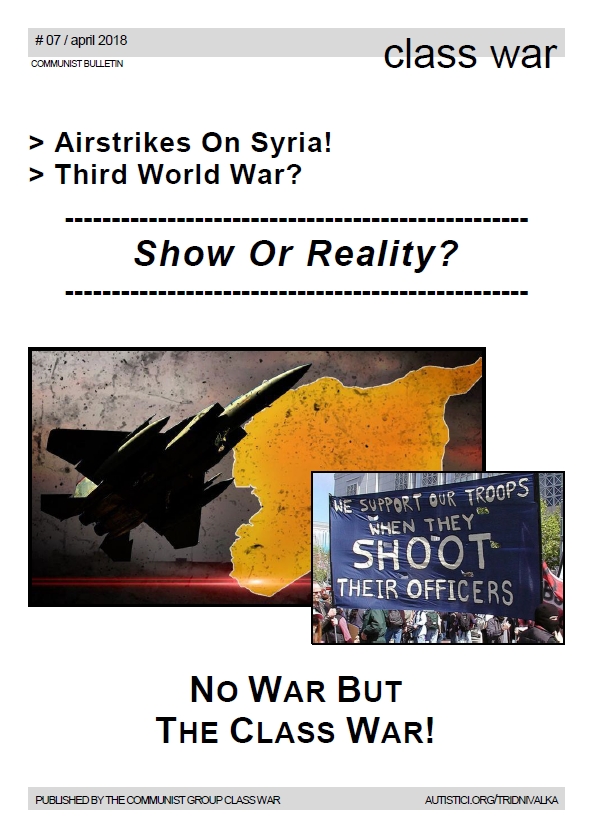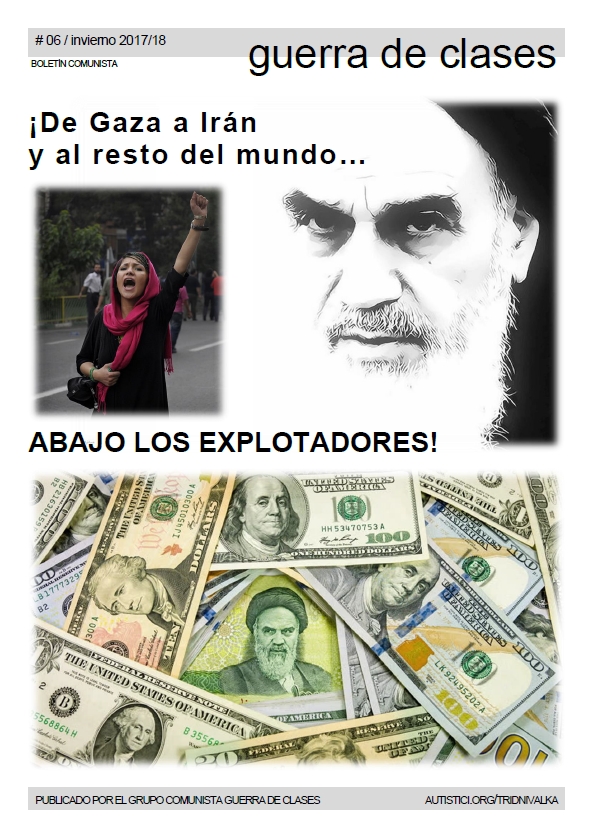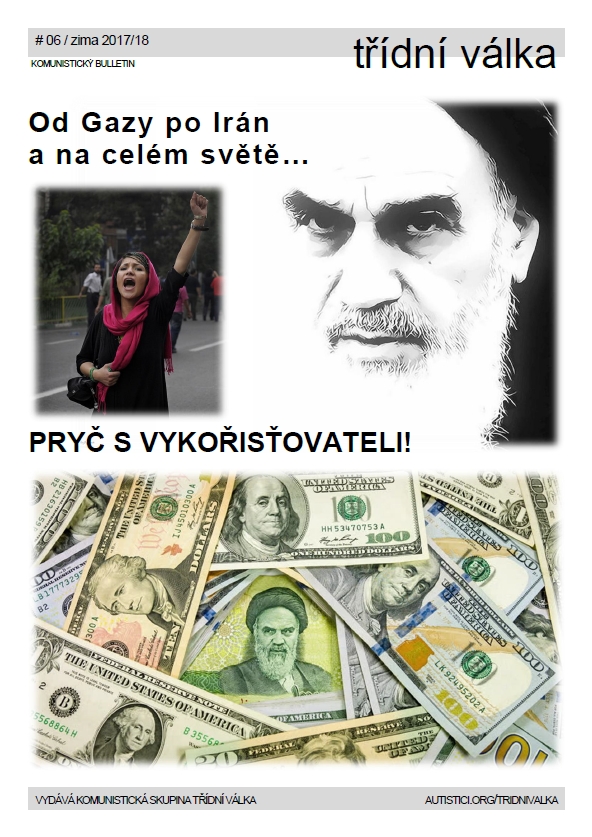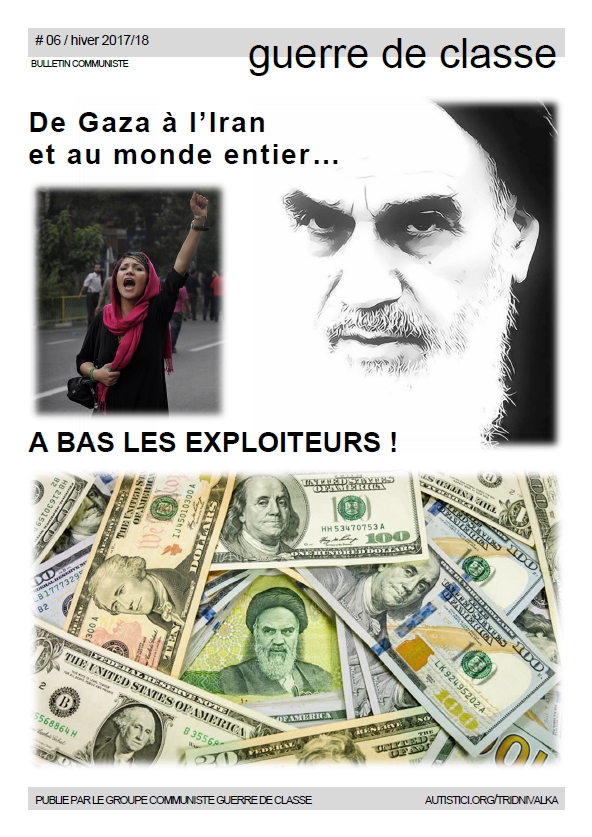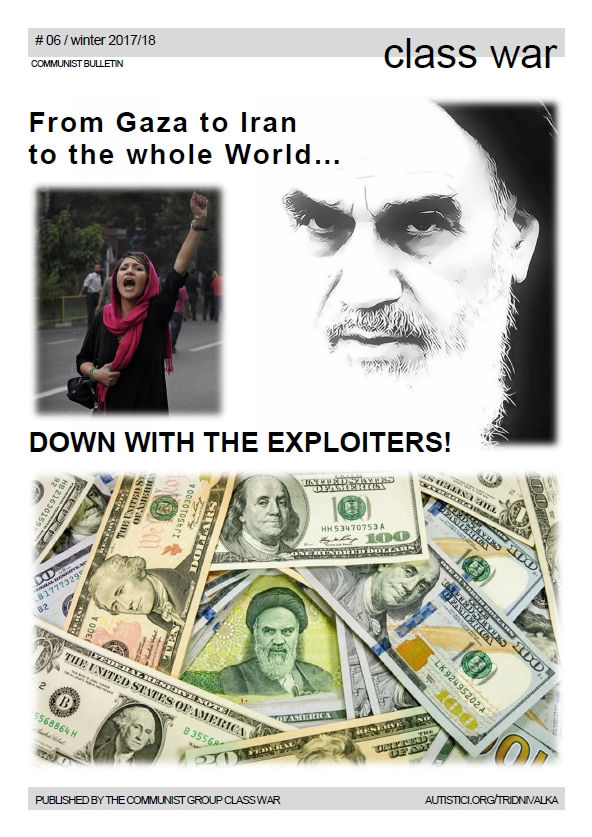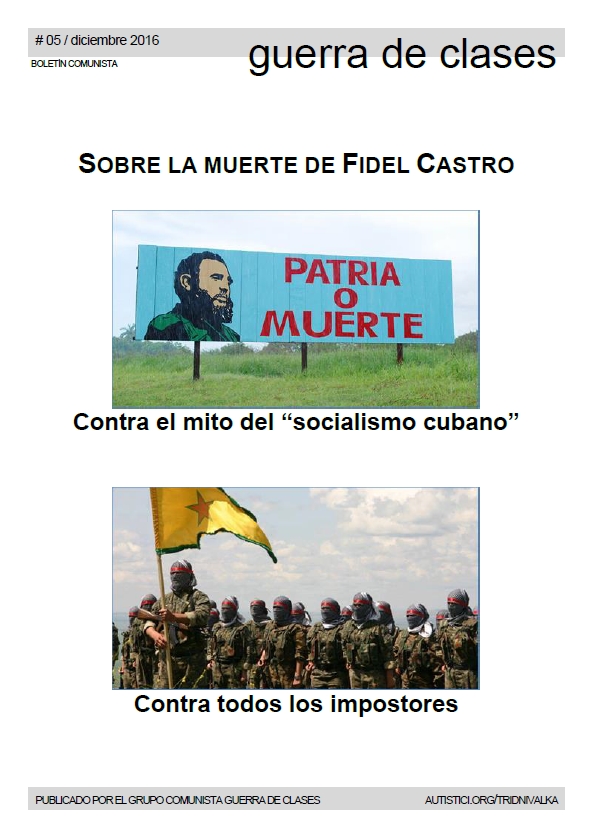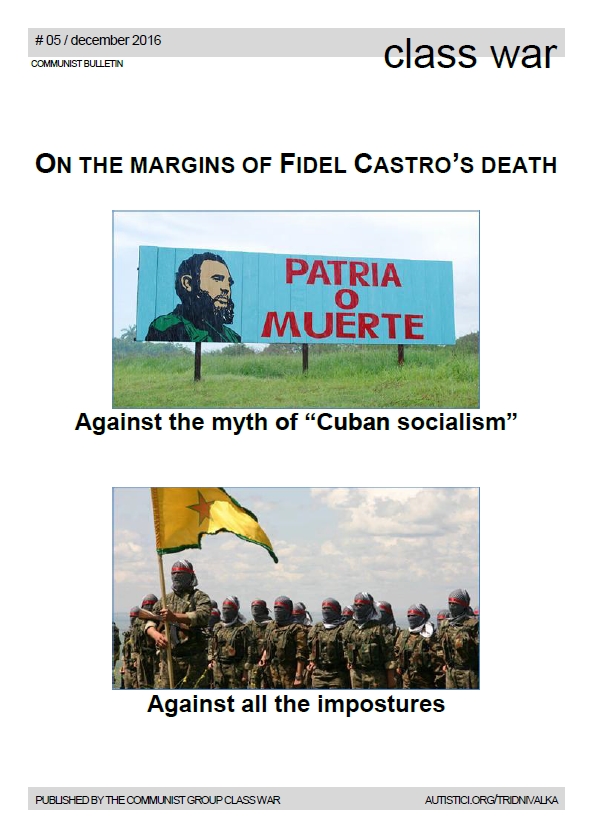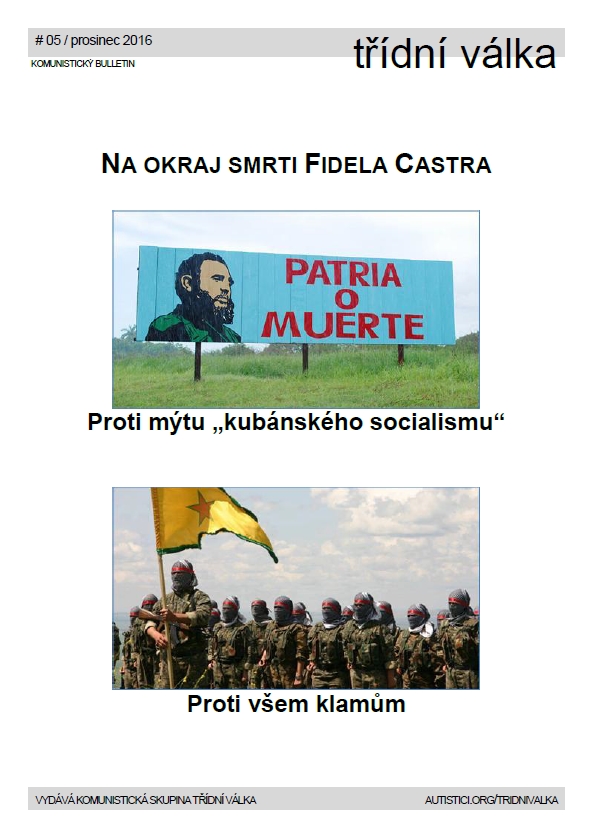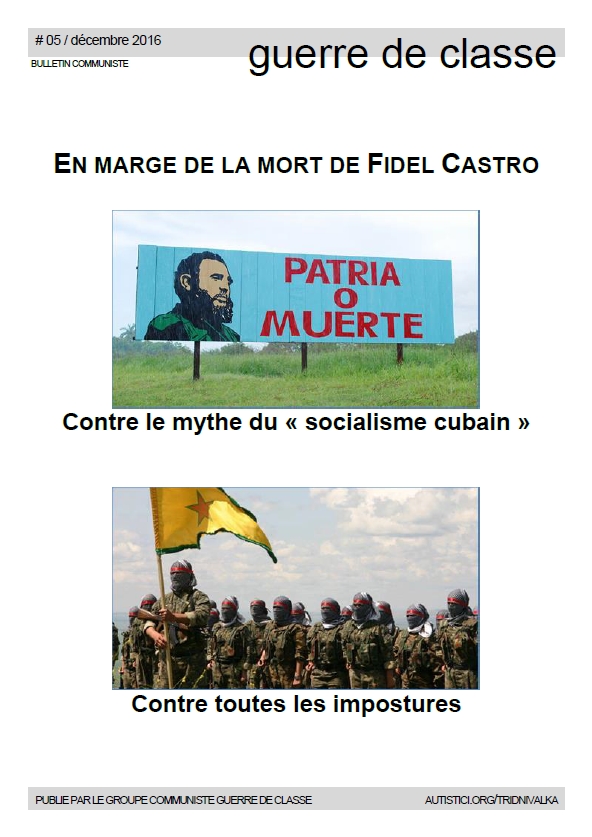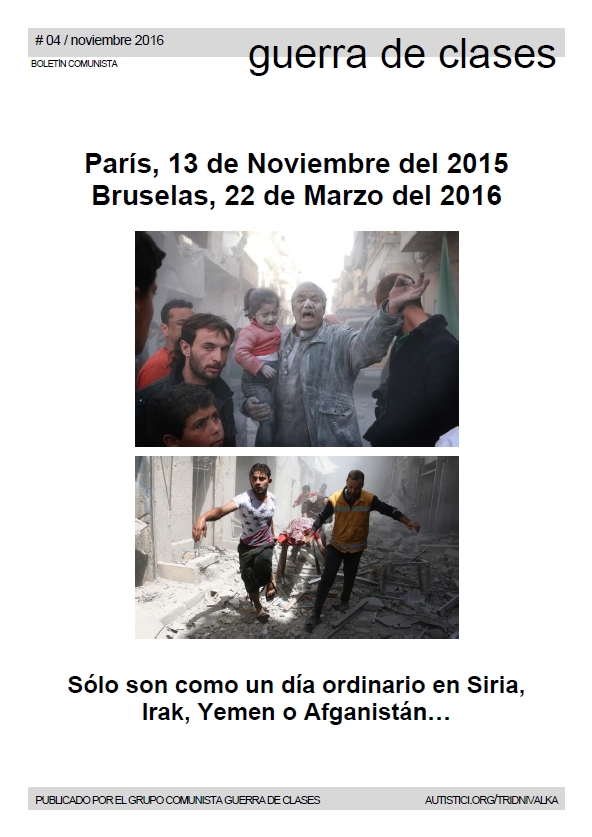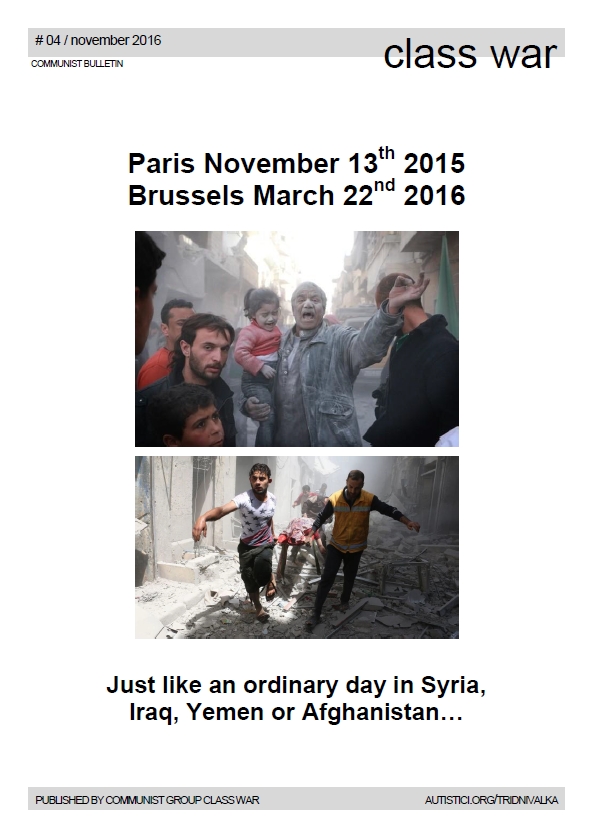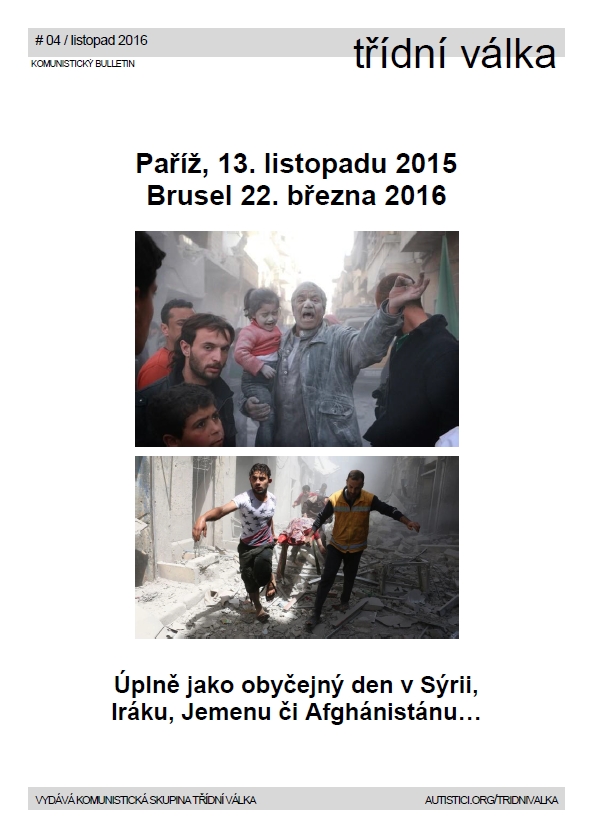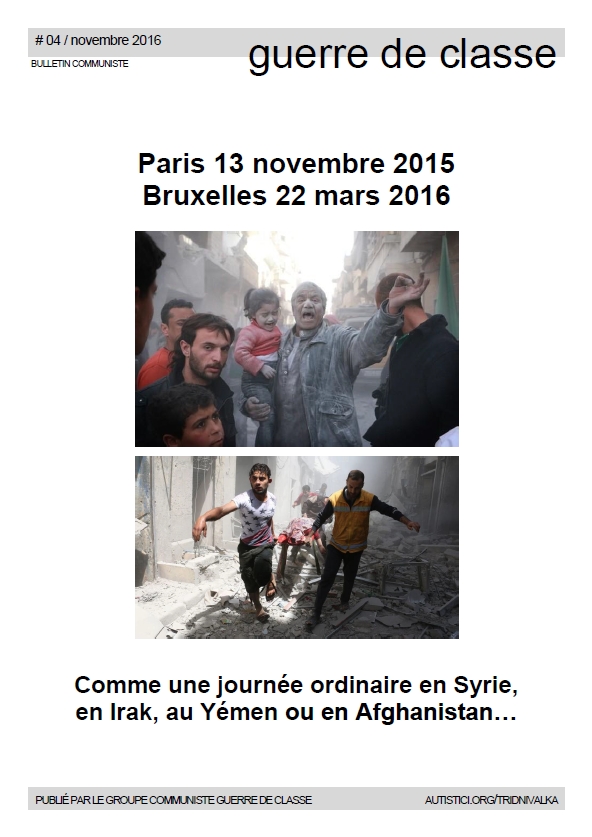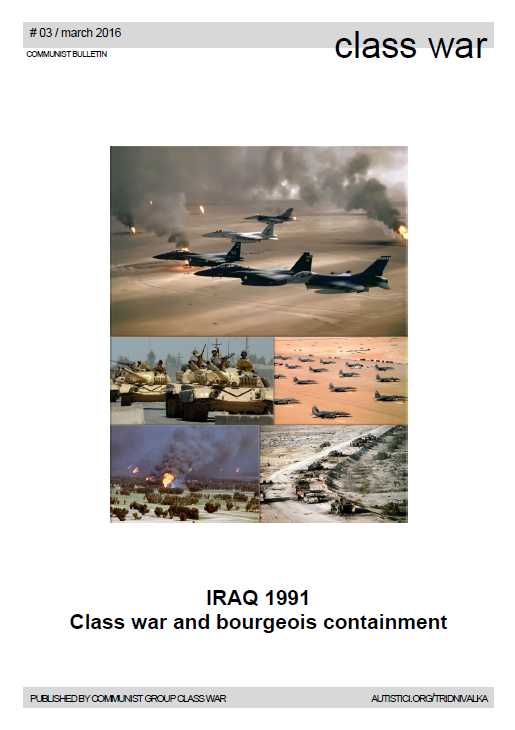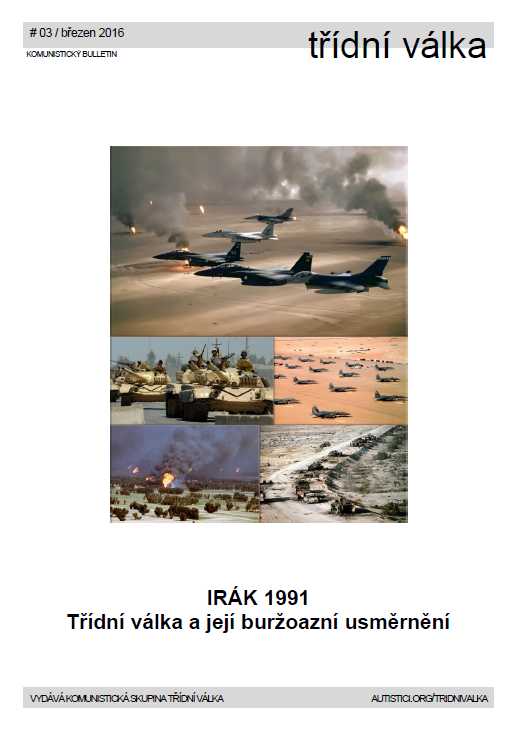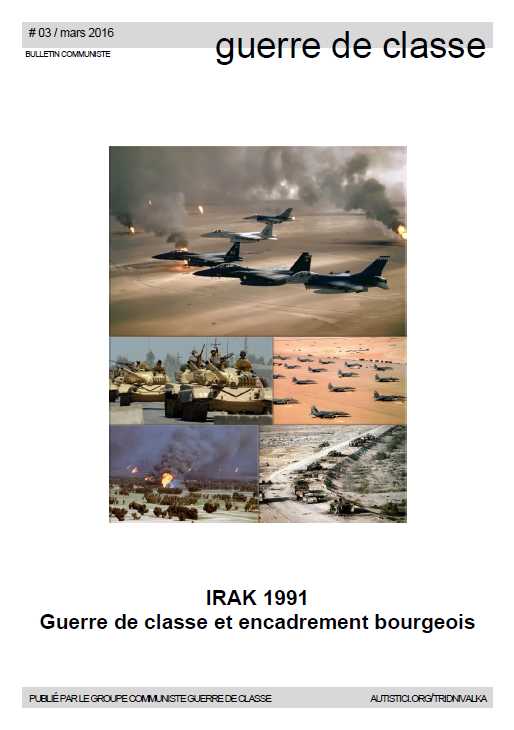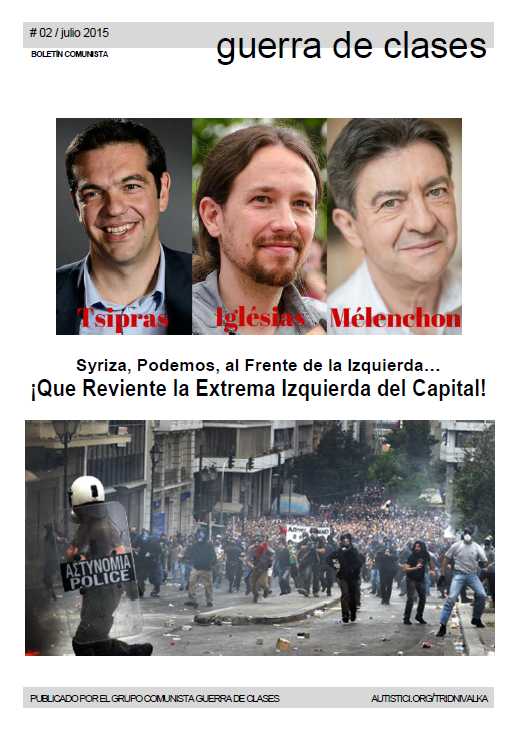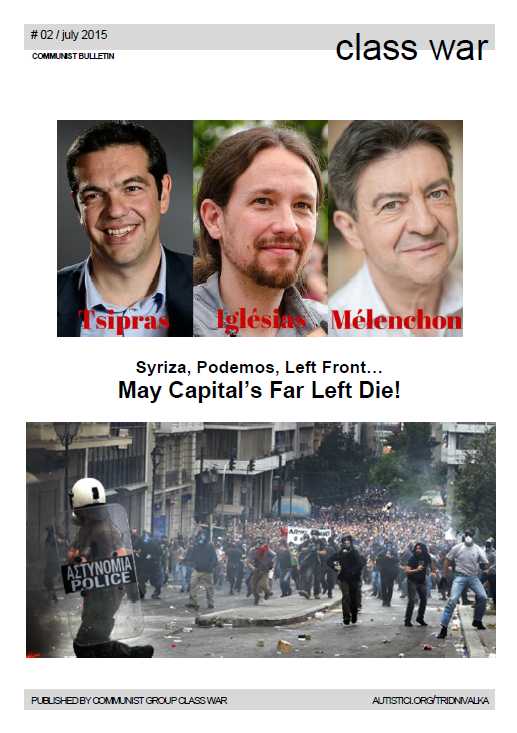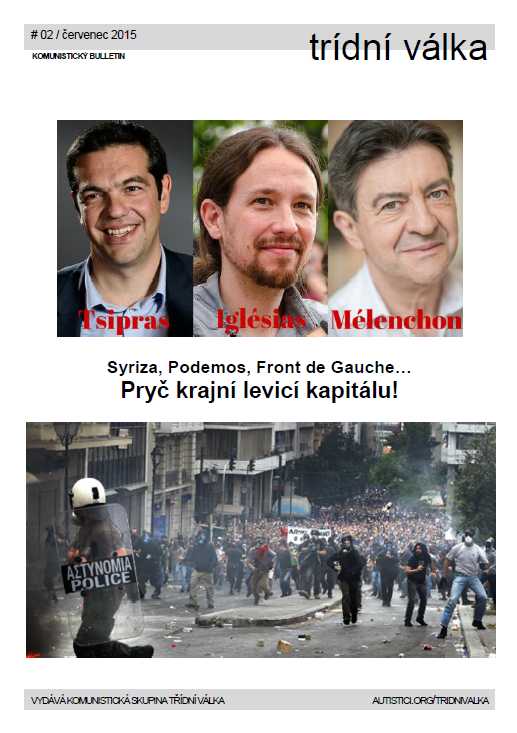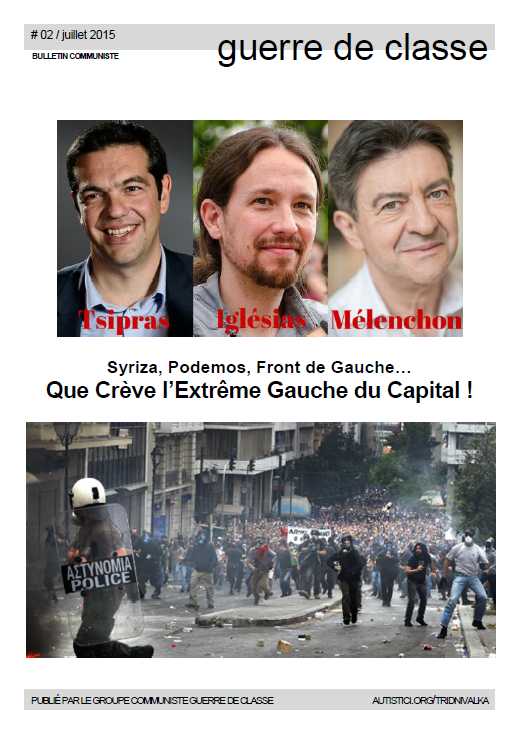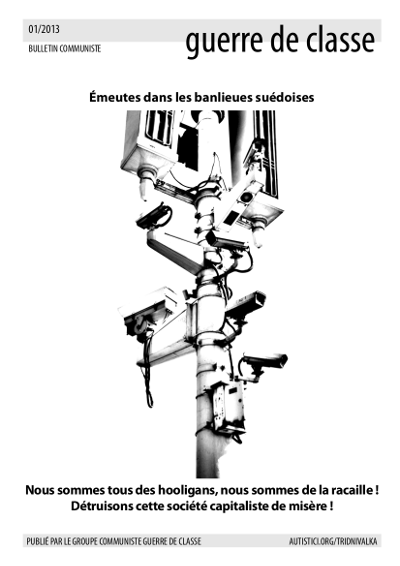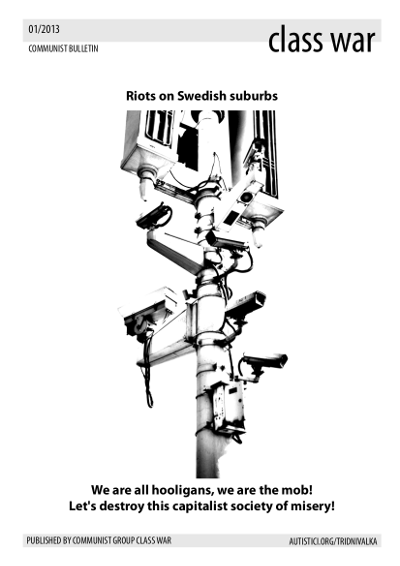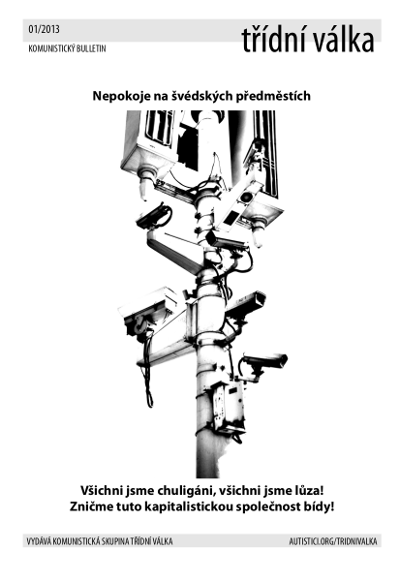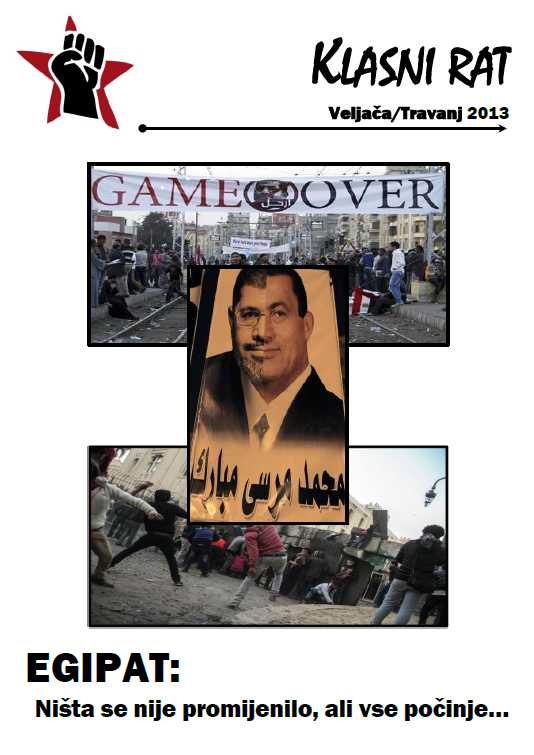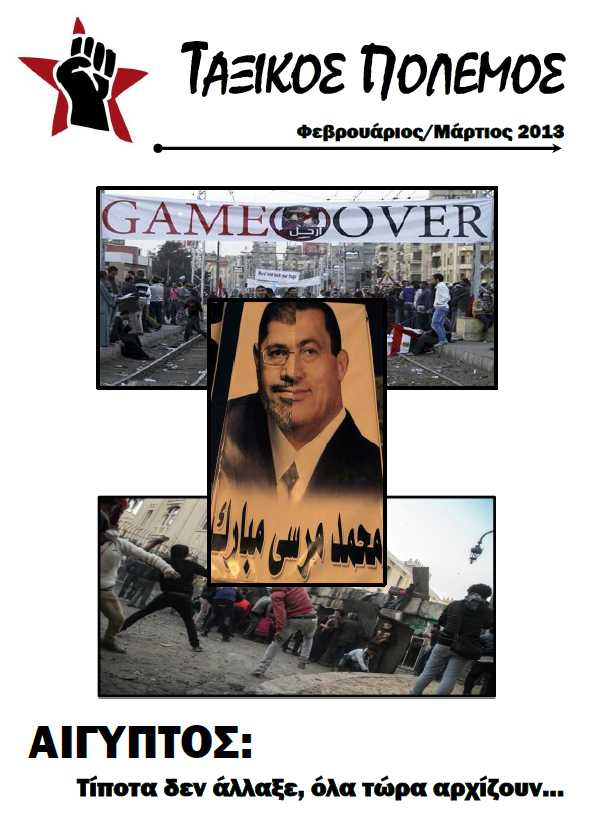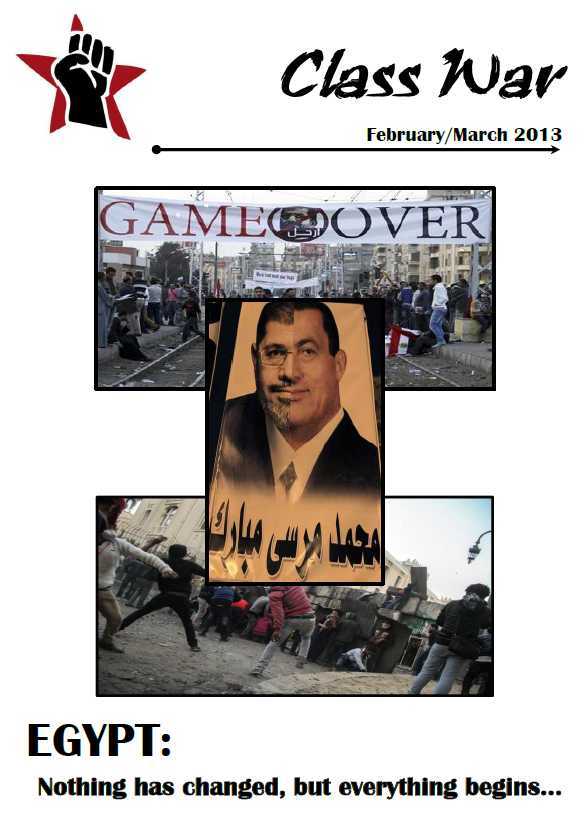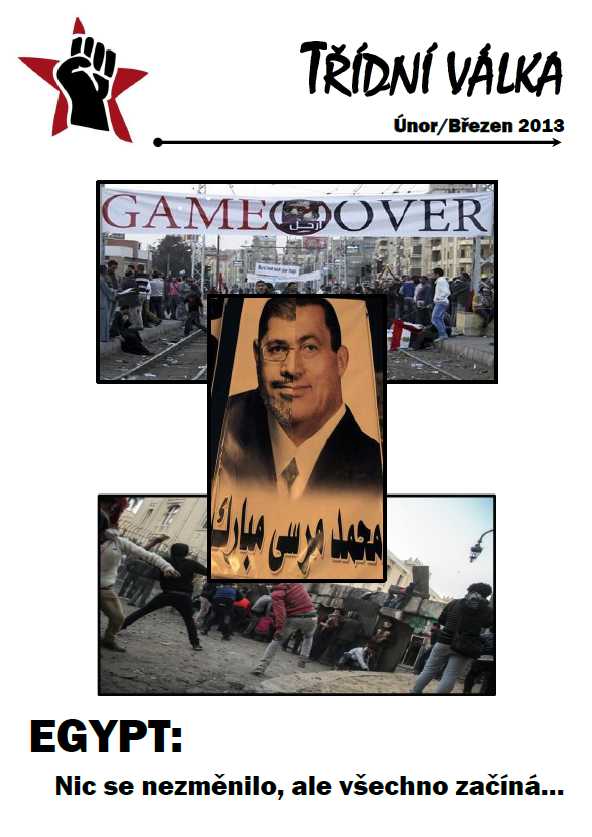| Español | Français | English | Deutsch |
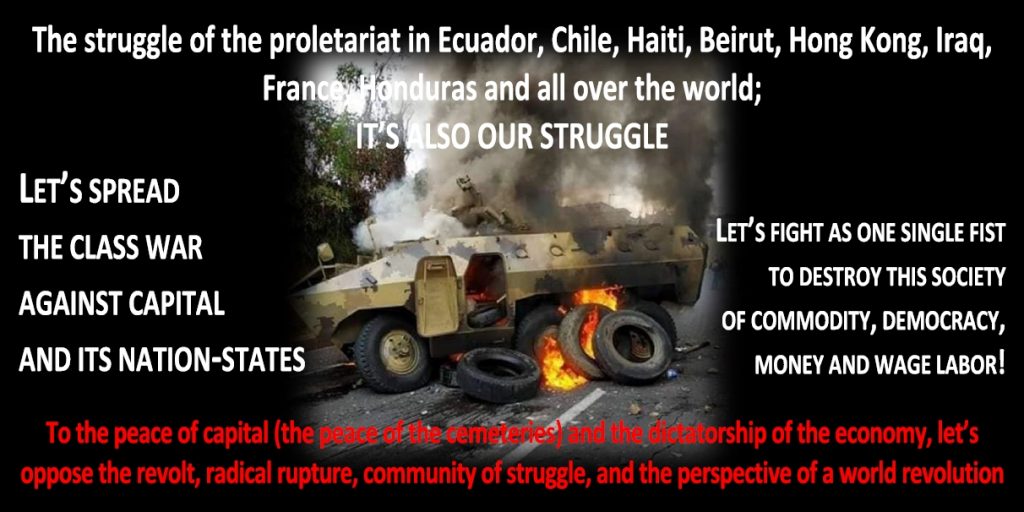
- Balance sheet and perspective of the current proletarian struggles all over the world (Barbaria Group)
- International Revolt Against Global Capitalism (Internationalist Proletarians)
Balance sheet and perspective of the current proletarian struggles all over the world
(Barbaria Group)
This past year we see revolts one after the other all over the world: revolts that lead Macron to visit the bunkers of the Elysée, that make Lenin Moreno move the seat of the government to Guayaquil, that assault the barracks and the headquarters of bourgeois parties in Iraq while reviving the memory of the insurrection of 1991, that topple one after the other prime ministers in Haiti or that plant a black flag in the Hong Kong parliament. The world bourgeoisie is beginning to get afraid.
As Cecilia Morel, the “First Lady” of the Chilean State, said a few days ago when speaking of the ongoing social revolt: “We are absolutely overwhelmed, it’s like a foreign invasion, alien, I don’t know how to say it, and we don’t have the tools to fight them […]. What is coming is very, very, very serious.”
Indeed, what is coming is a new cycle of class struggle that is raging under our eyes. From Iraq to Lebanon, from Iran to Algeria, from Sudan to France, from Haiti to Ecuador, from Hong Kong to Chile. Struggles stemming from the immediate, human needs of our class, and which from there open the historical perspective, still distant, of the social revolution, of communism. In Chile it is because of the increase in the metro fare, in Algeria because of political corruption, in Haiti because of the Petrocaribe Gate and the rise in petrol prices, as is also the case in France and Ecuador. In Hong Kong it began against the repression, in Iraq for the living conditions and water, in Lebanon because of the increase of the taxes on Internet. But these immediate needs tend to generalize and go beyond the reason that caused the initial spark. As one can see, we do not include Catalonia, which is a process totally located on the terrain of national liberation, which results from the defense of some bourgeois politicians who were sentenced and which seeks the creation of an independent Catalan State. The will of those who fight in these uprisings (or what they believe to defend) counts for little in relation to what each national demand prepares: imperialist wars and conflicts. The criterion for determining the nature of a movement is not its violent or non-violent character, which means nothing, but what it denies and challenges: one nation State is not denied by building another. Kurdistan is another good example of this.
We can draw some first lessons about this ongoing social polarization from the “Ten Notes on the Revolutionary Situation” that we had written a few months ago.
1) Most of the world is polarized. We are entering the beginning of an epochal change characterized by the confrontation between the classes, putting an end to the long retreat of the 1990s. In reality, we are experiencing the increasingly intense and strong development of processes of social ascent of our class, from 2001 in Argentina to 2006 in Oaxaca (passing previously through Ecuador or Bolivia), from the hunger riots in 2008 around the world to 2011, the year when our class generalized its struggles from the Arab world to Spain, the United Kingdom, the United States or even Greece.
2) Capitalism has reached a dead end. We are entering a period of social revolution because capitalism is exhausted as a social relation: it generates more and more superfluous humanity, it expels living labor from social production, and it consumes energy and raw materials with increasing voracity to try to address with more commodities what it loses by expelling human labor. Its crises are and will be more and more catastrophic.
3) The waves of struggle that emerge worldwide (2001, 2008, 2011, and 2019) cannot be understood as events in themselves, as snapshots isolated one from each other. It is the same film – in time and space – that has a common protagonist: the old mole of the revolution that strongly claims its needs and interests.
4) Rebellions and revolutions have a physical, material character: one fights for immediate needs. The important thing is to analyze the material facts that get the practices on the move. What the movement says is important, but what the movement does is more important now, as long as the struggle arises from the immediate needs of our class: something very different from the nationalist or political-electoral struggles that move completely on the terrain of bourgeois politics. The revolution starts from a process of ionization in which social molecules tend to be prepared to fight, polarized, regardless of the consciousness they initially have of the goals of the struggle. This is what we are seeing these last months in the different ongoing revolts. Nothing to do with bourgeois illustration.
5) This social slump, this clash of tectonic plates has a common root and therefore tends to become increasingly synchronous. Revolts spread to each other, from Ecuador to Chile, from Sudan to Algeria, from Iran to Iraq or Lebanon. The common root is the human needs that capital attacks from its needs of reproduction.
6) And yet, it must be understood that the opening of a new era characterized by confrontation between classes does not mean the opening of an insurrectionary period. We are still a long way from this, since an insurrectionary period would require a conscious determination, a program, a will recognized by our class: in short, a reversal of the praxis that needs a higher level of organization and that needs a party, as we will explain below. Even so, there is no doubt that the collision of tectonic plates we are witnessing will be increasingly intense and constant, extensive and concentrated, in spite of the ups and downs it will experience in the coming years.
7) What tasks can we as revolutionaries give to ourselves? We are at the beginning of a new historical period in which it is very important that the processes learn by themselves. Our party, as a social force fighting for communism, lives and is already formed on the ground of these revolts. As revolutionary minorities we are part of the proletariat and of these struggles, we are not a party apart [separate and distinct], but we are those who, as Marx said, try to promote and deepen the determinations of the movement, and at the same time try to clarify theoretically our practice around the general objectives of the class. As we have said, the beginning of a new phase of class struggle, a long period of social revolution marked by the terminal crisis of capitalism, does not mean that communism is just around the corner. We are very far from a revolutionary situation: the ability of the proletariat to constitute itself as a class, as a party, is fundamental for this; the convergence between the material processes of the class struggle and the communist historical program that comes from those same struggles is essential. That is why the questions of theoretical and programmatic clarification are so important today. Our struggle does not stand alone in the barricades of the present, but also in the lessons that can be drawn from the barricades of the past.
The road is still long and yet there can be no turning back. We have to live the passion of the struggle but also the struggle for theoretical and programmatic clarity.
Many times, when we debate in “radical” spaces and refer to the need for revolution, we feel like aliens who would have landed from Mars. What! Revolution? Worldwide? Vade retro: that’s totalitarian, reactionary. What do you want? For it is neither a pious desire nor a fact of will. Revolts and revolutions will be a current data of our historical time, more and more synchronous. It is not a question of wanting them to happen, since they do so spontaneously: it is a question of directing them [orientating them] in the perspective of the abolition of classes, of the State and of commodity.
That is why we dedicate these notes to all those who had thrown the revolution into the dustbin of history, to all those who reduced the proletariat to a manipulated and manipulable mass at will, who subjected the immediate needs of the proletariat, of humanity, to the games of the movements of capital. Let’s never forget the strength and power of our class.
Barbaria Group – October 2019
Sources in Spanish: https://panfletossubversivos.blogspot.com/2019/10/este-ultimo-ano-vemos-sucederse.html
https://materialesxlaemancipacion.espivblogs.net/2019/10/23/texto-sobre-la-actualidad-de-nuestra-lucha/
https://proletariosrevolucionarios.blogspot.com/2019/10/balance-y-perspectiva-de-las-luchas.html
https://valladolorinternacionalista.blogspot.com/2019/11/grupo-barbaria-sobre-la-actualidad-de.html
English translation: Los Amigos de la Guerra de Clases
International Revolt Against Global Capitalism
(Internationalist Proletarians)
The proletarian revolt has exploded throughout the world, converging violently in different corners of it. Chile, Ecuador, Iraq, Haiti, France, Lebanon, Hong Kong, Columbia, Bolivia, Honduras, Algeria, Sudan… are a few of the places where in recent months we have taken to the streets, unleashing all the rage which has accumulated for years. The announcement of an increase in subway fare in Chile, of the tax rate for petrol in France, of the price of bread in Sudan, a tax on social networking and on gasoline in Lebanon, or the withdrawal of subsidies for petrol in Ecuador, were enough cause for us, just like in Iraq or in Haiti, to burst out, desperate and furious in the face of the absolute impossibility of living.
The global bourgeoisie’s insatiable thirst for profit is carrying life on earth to unimaginable limits, the contradiction between the necessities of valorization and human life have been exploding since a few years into revolts that today, with the concentration in time of dozens of revolts, announces a new sharpening of class antagonism at an international level. Every barricade, every protest that rises against the successive increase in our exploitation, every road stoppage, every sacking, is a call from the worldwide proletariat to struggle against the deterioration of our living conditions, to extend and affirm the negation of this world, to once again take up and to raise the banner of the social revolution.
What the revolts that today spread throughout the capitalist world announce is nothing other than the re-emergence of the proletariat, the return of the old mole that never stopped digging. The so-called arab spring, the social revolt in Greece, in Turkey, in the Ukraine, or the recent struggles in Brazil or Venezuela, were the prelude to an international and internationalist movement which today stirs fear in the hearts of all the representatives of global capitalism and which stokes the hopes and the spirits of proletarians throughout the world.
From the government in power that executes the measures which impose the economic necessities and which always suppose an increase in the prices of the bare essentials; from the boss who directly exploits us at work, squeezing the last drop of energy out of us; from the market that casts us into unemployment in a world where if you don’t have bills in your pocket you are dead weight and are sent directly to the slaughterhouse; on to the bank, or better said to the world’s banks that increase the amount of our exploitation with all kinds of spoliation measures that cause those same bills to be worth increasingly less in our hands; from each more “fix” of profit that the global bourgeoisie shoots up at the cost of poisoning the air, the water, the earth, our blood or the things we eat, on to all of those innumerable organizations, unions and parties of the left and the right that represent “alternatives” inside of capital and which serve to keep us in slave conditions perpetually… each and every one of them will be indicated by the fire of the revolt as the culprits for our sufferings, as the representatives of global capitalism.
The power that our class has displayed in these last few months has even managed to disrupt the frameworks which the national bourgeoisie were able to impose in some places in order to absorb our struggle. In Hong Kong, the inter-bourgeois framework recoiled from the force of the international struggle which pushed some of the slogans of our enemy to the corner and caused proletarians to distance themselves from them. Even in Catalonia, where the nationalism seems omnipotent in directing a spectacle that drags the proletariat to deny itself as a revolutionary force, there have appeared slogans and practices of minorities who express that the revolutionary force will only beat its path outside of and against the trap of national flags.
Obviously, having said that, highlighting the historical importance of what we’re experiencing and what tends to affirm itself in practice as an international and internationalist proletarian movement against all the attempts of the bourgeoisie to repress, hide, channel, deform and fracture it… we don’t doubt for a moment that this is just the beginning of a long and complex process. It’s difficult to predict the pulses and developments that it will have, the comings and goings, but it is doubtlessly advancing towards a confrontation which is increasingly more international and widespread, increasingly more violent, increasingly more decisive.
If indeed we are already hunger-stricken, getting sick in all possible ways and suffocating because of everything which gives a boost to the economy at the cost of our life and that of our planet, what is yet to come is still worse. The capitalist catastrophe that is arriving is incomparable with what has been experienced up until now. The insatiable vital needs of the capitalist economy ask to sacrifice the human being and all that lives upon the altar of profit. But the proletarians have retaken the path that opens the door to the future: the fight, the intransigent struggle to impose a radical transformation, the attack on the diverse instances and representatives of capital, the affirmation of the community of struggle against capital in the streets of innumerable corners of the world.
In the face of the power of the international revolt, global capitalism responds in the only possible way, with its whole terrorist arsenal. During these last few weeks of protest the democracy of capital has reminded us that its dictatorship is the most brutal one that humanity has ever known. Police, riot squads and soldiers pour out to fill the streets with blood, to destroy bodies, to enclose us, to murder us, to leave us without supplies and provisions in order to cause us to recoil, in order to instill fear in us so that we abandon the streets, to show itself as invincible. Hundreds of dead, tens of thousands of arrested and imprisoned, men, women, and children mutilated and tortured by the weapons that they use against us, cities and neighborhoods cut-off from provisions in order to make us go home and yearn for a return to the peace of the cemeteries.
Although in some places we try to respond to all this terrorism by creating community pots and kitchens, refuges, spaces for caring for our smallest children while others fight in the streets, centers for treating the injured and sheltering comrades, and we also respond with revolutionary violence, taking places that hold provisions by force, attacking capital’s means of communication, obtaining and distributing weapons with which to defend ourselves and attack the terrorism of the State, trying to respond to its terrorism by expressing ourselves as a community of struggle, as a community of solidarity, what’s certain is that we still don’t have the sufficient force to respond as much as it is necessary to the terrorism of the State. Certainly, the military and all their murderous arsenal haven’t made us retreat, and the resistance in the streets fills us with determination and courage. Nevertheless, when the army takes to the streets to unleash all of its terror, in spite of the existence of minorities who maintain the pulse of the struggle and attempt to give direction, we’re still incapable of making a qualitative leap that crystallizes in insurrection. The necessity that presents itself to us in every revolt is how to go about developing and furthering this insurrection.
We have to retake the trail of the past, remember what our class brothers and sisters did then, how they crystallized the insurrections of the past that were able to destabilize the State. We have to remember how the forces of repression were dismantled, how the armies were broken down, how enormous swathes of soldiers refused to fire on the revolt, or even further came with their weapons to the other side. The breakdown of the army always was and will be a fundamental qualitative leap in every proletarian revolt.
We must also retake the creation of structures for supply, for self-defense, we must organize the assault on the stockpiles of arms in order to crystallize the insurrectional necessities of the confrontation. But we also need to know when to retreat in the moments in which the correlation of forces is unfavorable, maintaining the collective force in order to prevent the state from wiping us out. Sometimes retreat, but not cessation, is necessary in order to become structured, to amplify the associationism and the international proletarian structuration. We also need to liberate the prisoners, the arrested, etc. But above all we need for all of this to be materialized as the expression and direction of our community of struggle against capital. All attempts to elude the insurrectional necessity and to develop a war between military apparatus in its place, or to split the organized violence off from the community of struggle itself into a specialized task for a guerrilla group, are paths that liquidate the force which we are generating. Just as well with all the petitions for human rights, or the demands for the resignations of those in charge of the State: forms of democratic integration. Nevertheless, we’re convinced that our community of struggle will learn not only from its own current experience, but that this very experience will cause it to rediscover its own past in order to search for the way to take on these necessities. Like in Iraq, where the proletarians throw around slogans in reference to the insurrection of 1991.
We can’t disregard that the existing social order will not only combat our struggle with bullets and soldiers that are launched against the barricades, but with a conglomerate of ideologies and forces that maneuver to destroy all social contestation. And what’s even more dangerous is that these very forces, taking advantage of our own weaknesses and current limitations, present themselves as a part of our community of struggle, bringing many sectors of our class to identify themselves with them. The national or nationalist “solutions”, the spectacles of constituent assemblies, the requests for democratic purifications or any other reform inside of the State are bullets more dangerous than those which the soldiers fire, since they are aimed at the heart of our movement. The revolutionary perspective, the whip of that heart of the community, depends on our determination to oppose and confront these forces of the counterrevolution.
Neither must we forget that it’s fundamental to take on a whole series of tasks in the places where the social peace hasn’t yet been broken. Obviously these tasks don’t have anything to do with limiting themselves to the anti-repressive issue and/or mobilizations at embassies and consulates, which are the subscribed terrain for reformist discourses and the ones about rights, with complaints and condemnations against the “excesses of the State”. Nor, of course, do they have anything to do with defending the revolt as “the land can’t hold out any longer” and that it is “brutally repressed”. These practices precisely permit the progressive bourgeois fractions to liquidate the true class solidarity, to make of the revolt and its necessity something removed, pertaining to other places, which allows them to deny it upon their own terrain, defending the democratic peace and the calls to vote for the lesser evil. In contrast, class solidarity defends the revolt as an expression of our community of struggle against capital, as one same struggle against one same global enemy. It is clear that the necessities and tasks which can be assumed in the different places arrive conditioned not by militant groups, but by the correlation of local forces. Therefore it is necessary to create instances and committees of solidarity, in order to centralize and spread the distinct informations about the struggle, just as it is done inside of the revolt (the sociability, the sackings, the communitarian organization, the self-defense, the comradely communiques, etc.) in order to stand in opposition to the lies of the mass medias, to the social-democratic channeling; to create networks of aid with the refugees, etc. Definitively, we must propel the structuration of our international community of struggle, seek forms of satisfying the necessities that present themselves to us in the struggle and of overcoming the obstacles that we encounter.
The proletarian revolt that today is turning global capitalism upside-down evinces, in the face of all those who want to make us believe that the revolution is impossible, that the only alternative to capitalism that the human being has is global revolution. The struggle itself, and that which crystallizes it, gives us the certainty that humanity can destroy this form of living based on the community of money, sending it to the dustbin of history, and develop a new society based upon the human community and its inseparable unity with the Earth.
Coming from different countries and distinct scenarios, one same struggle against capitalism!
Let’s organize our community of struggle internationally!
– Outside of and against the unions and parties –
Let’s further the struggle against capitalist social relations!
Internationalist Proletarians
info@proletariosinternacionalistas.org
www.proletariosinternacionalistas.org
Source in Spanish: http://www.es.proletariosinternacionalistas.org/revuelta-internacional/
English translation: https://malcontent.noblogs.org/post/2019/11/27/international-revolt-against-global-capitalism-proletarios-internacionalistas/
